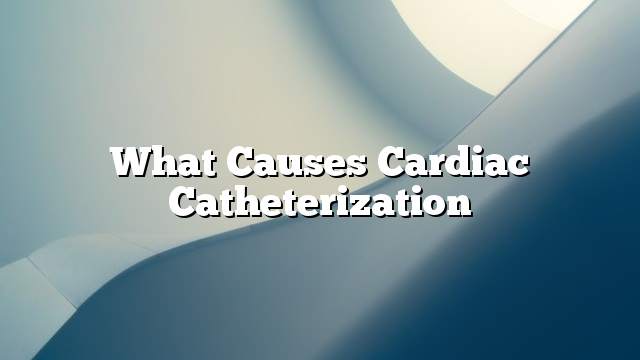Cardiac catheterization
Cardiac catheterization is a process to diagnose or treat any heart muscle or coronary artery damage, including blood vessels and coronary arteries, to perform the function of the heart muscle, which is to pump blood to all cells and organs of the human body. The two blood cycles, the major blood cycle with all parts of the body to provide them with the oxygen necessary for them, and to do the functions to the fullest, and also through the blood circulation micro-occurring with the lung, and works on the oxidation of blood is not oxidized.
Causes and Causes of Cardiac Catheterization
- To work to open the closed vasculature: it may be closed in whole or in part, and this is caused by the occurrence of hardening of the arteries, known as (Atherosclerosis), where a blockage or narrowing of an artery, which may negatively affect the rate and proportion The normal blood flow in the artery, the cause of occlusion in the blood vessels is the result of accumulation of excess fat on the inner wall of blood vessels, or the result of the accumulation of blood clotting factors, the goal of the catheterization is to open this blockage in the blood vessels.
- Angina pain: angina occurs due to the lack of oxidative blood to the heart muscle and insufficiently, as a result of this problem to the occurrence of severe pain and acute in the heart area and the patient’s chest, so that the damage is caused by an area of space The purpose of the catheterization process is to treat the obstruction resulting from thrombosis leading to blockage in the blood vessels, and also to relieve acute chest pain.
- Repair of congenital defects: so that the process of cardiac catheterization is aimed at the repair of any congenital defect that is born with the person and is located in the heart, which may affect the function of the heart in general, and these birth defects, defects in one of the heart valves, Blood in one direction without returning again to the top, or may have defects in the barrier that separates the ventricles or atria.
Risks of heart catheterization
- Infection in the surgical incision.
- Bleeding: may be the result of certain medications.
- Risks in the anesthesia process: which are related to excessive sensitivity in the person, and a drop in blood pressure.
- An injury to a blood vessel.
